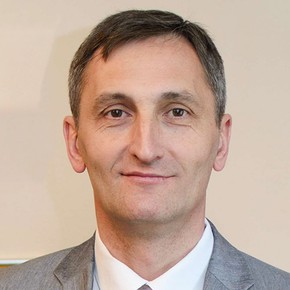Biography
A former officer and father of three daughters, Vladimir Melnik became a staunch Christian almost 30 years ago. However, in December 2020, he unexpectedly ended up in the Oryol pre-trial detention center for his faith. This law-abiding man became accused under an "extremist" article.
Vladimir was born in December 1965 in Donetsk (Ukrainian SSR). His father was a photographer, his mother worked in a factory. Vladimir has an elder sister. As a child, he was fond of athletics, swimming, electronics and photography, and raised rabbits. He graduated from the Kiev Suvorov Military School and with honors the Oryol Higher Military Command School of Communications named after M. I. Kalinin of the KGB of the USSR (now the Academy of the FSO), where he received the specialty "engineer of radio relay and tropospheric communication lines." After completing military service, he worked as an engineer, manager, finisher, and electrician.
From 1983 to 1987, Vladimir lived in Oryol, where he met his future wife Irina at a friend's wedding. Later, he was transferred to Poland, from where in 1994 the family decided to return to Oryol. Now Irina is a housewife. She likes to read, draw, sing, write poetry, make decorative cards, knit and sew clothes for dolls. The Melnik family has three adult daughters. Mariya works as a translator, Anastasiya is a specialist in information technology, the youngest daughter Yekaterina graduated from high school with a gold medal and works as a tutor in mathematics and computer science.
Since childhood, Vladimir was an atheist, but one day he came across a book about the life of Jesus Christ. According to him, she "turned his mind." After some time, both spouses became Christians. They worked hard to educate children based on the biblical commandments.
After the search, Irina's chronic illnesses worsened. Due to the criminal prosecution, the family was left without a breadwinner for a long time, whom they really lack. In October 2023, the court sentenced Vladimir to 6 years in a penal colony. In April 2025, he was released, having served his term in full, taking into account his stay in a pre-trial detention center.
